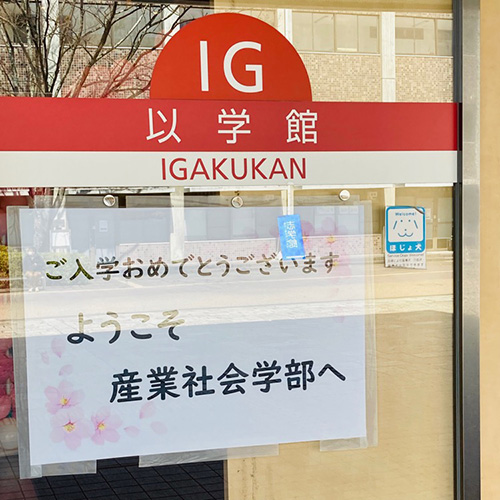Voice from Huang Shumin
- Home
- Career Counseling
- Voices from Graduates
- Voice from Huang Shumin
Huang Shumin
Graduated from Takadanobaba Campus
Ritsumeikan University
Entered Department of Contemporary Sociology, Faculty of Industrial Sociology
- Why did you decide to study in Japan?
- I decided to study in Japan when I was a sophomore in high school. I thought that the Japanese entrance examination, which is unique to universities, would suit me better than the standardized entrance examination for Chinese universities. I was good in the humanities and wanted to study sociology in the future. When I learned that sociology courses at Japanese universities not only teach theory but also provide many practical activities, I decided to apply to study sociology in Japan.
- What will you mainly study at the university?
- The study of contemporary society from a sociological perspective. These include the environment, cities, media, culture, entertainment, sports, family, welfare, and children. Students can study contemporary social issues from a trans-genre perspective.
- How is your college life now?
- At the university, there is a lot of interaction among students besides lectures. I believe that I was able to improve my communication skills by making friends from various countries in an international environment, not only Chinese students.
Two months ago, I started working part-time at an izakaya (Japanese style bar) in Kyoto City, and I have learned a lot about Japanese food culture. - What is the appeal of Ritsumeikan University?
- Ritsumeikan University has more international students than other universities. Not only could I interact with Chinese classmates, but I also made many friends from other countries. The university will provide many student support services such as internships, seminars, qualification courses, and job hunting support.
Ritsumeikan University has the No.1 collection of books among private university libraries in the Kansai area. - What are some of the things you have to adapt to in your university life, especially as an international student?
- I think it is necessary to communicate a lot with Japanese people and broaden the scope of our friendship, rather than staying within the circle of international students.
- How did you feel about your own college entrance exam?
- I took both the first and second semester exams at Ritsumeikan University. In the first semester, I was only concerned about EJU (Japanese) and did not score enough in other subjects, so I failed all the universities I took, including Ritsumeikan University. When I tried again in the second semester, I not only improved my score but also practiced a lot for mock interviews at school, and was able to pass the final Written Exams and Interviews Tests and pass Ritsumeikan University without a hitch.
Don't be discouraged if you fail. If you work just a little harder, you may reach your goal. If you can realize your shortcomings from your failures, then you can work hard and the results will surely follow. - What are your plans for the future?
- I would like to go on to graduate school for sociology.


